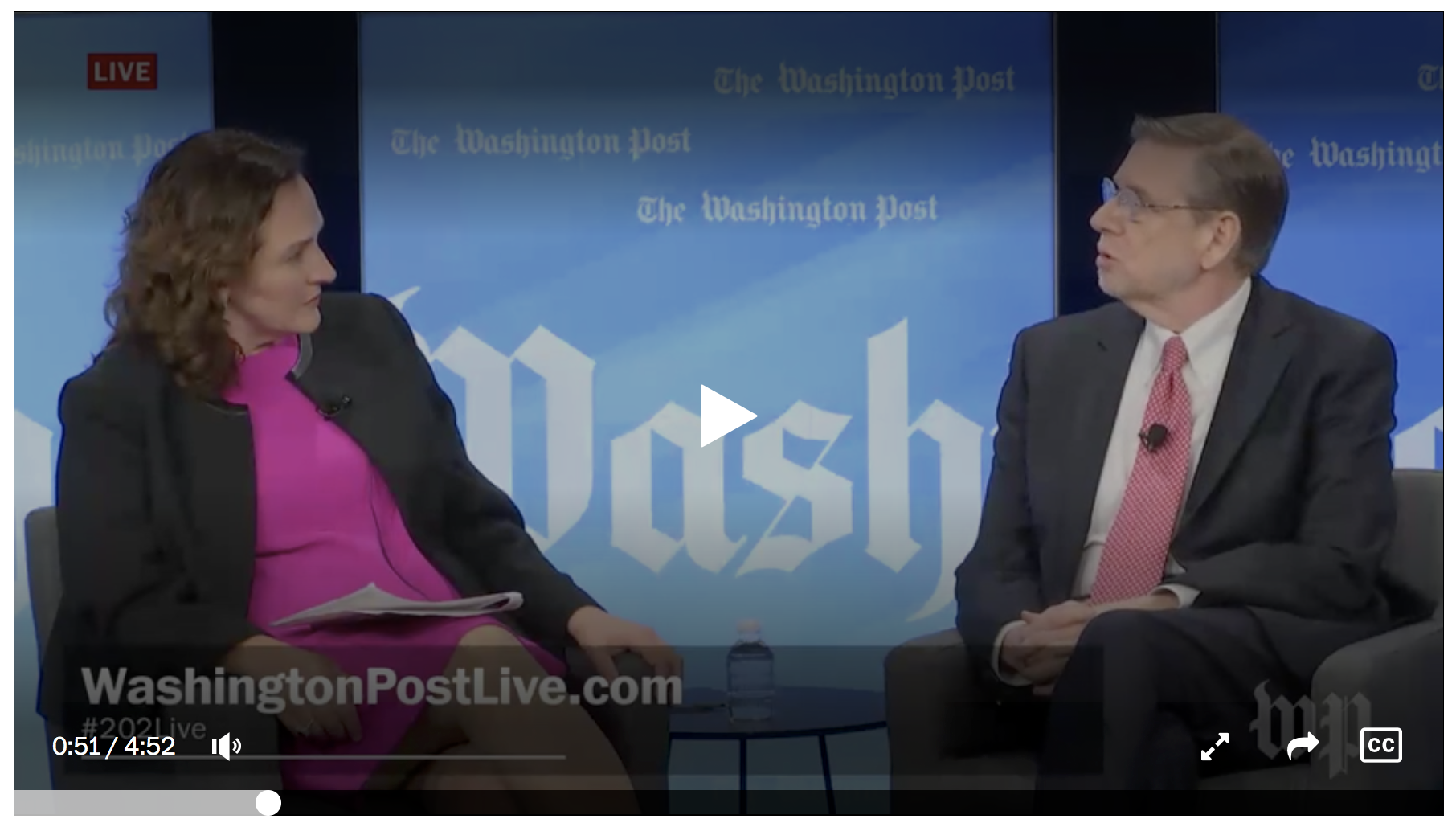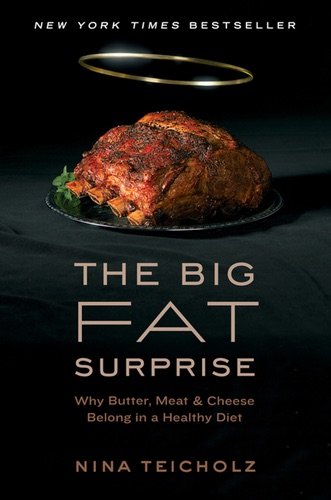In an extraordinary exchange, former FDA commissioner David Kessler challenged NYU professor Marion Nestle about what we think we “know” about a healthy diet. This video is well worth watching.
The exchange crystalizes a very basic difference of opinion that exists among nutrition researchers today: those who question the basic tenets of our nutritional guidelines vs. those, such as Marion Nestle, who insist that we know what a healthy diet is and that obesity/diabetes continue to rise simply because Americans fail to follow it.
My own view is that we can no longer blame the American public and all people worldwide for failing to follow nutritional guidelines. This is not a plausible explanation, nor is it based on the best available data.
In this video, it is notable that Kessler acknowledges the failure of nutrition policy and states that obesity is the result of “metabolic chaos.” He also gives a nod to “insulin resistance” as playing a role in the etiology of type 2 diabetes, a more nuanced view than the calories-in-calories-out model of thinking which Nestle still promotes.
Kessler states:
“The obesity problem is worse than we’ve thought. It creates a kind of metabolic chaos…And we are clueless. We have no idea what interventions work. I think we have FAILED in giving nutritional advice to people. If diet and exercise worked, we’d all do it, and it wouldn’t be a problem. [Yet] it doesn’t work in the long run…. WE spend billions of dollars throughout many different departments. I’d go back to the very basics. At the National Institutes of Health, I’d set up a new institute on nutritional sciences. I would try to get answers to the very basic questions. Is a calorie a calorie? Can I eat unprocessed meat? What’s the basis of insulin resistance and diabetes? I think we have FAILED the American public on this basic information.”
He continues:
“We began processing foods in the 20s and 30s…and I think no one has a clue the effect of processing on human physiology. Something has driven all of us to get bigger and bigger. And we’re leading the world [in obesity], and we’re exporting it. And it’s coming from what we EAT, and we don’t fully understand it.”
Marion Nestle replies:
“I’m not sure we have to fully understand it. We know that the US production system produces twice the number of calories that we need. And people started eating more in 1980. And those calories have to be sold. We now consume between 300-500 calories more per day, and people gained weight. It’s not complicated! Some of that came from larger portions, and some of it came from food marketing. If you eat more you’re going to gain weight. I think we know what healthy diets are. They’re diets that contain a lot of fruits and vegetables, they’re balanced in calories, and they don’t contain a lot of junk food.”
Kessler counters:
“So why don’t we do it?”
Exactly. Many people strive faithfully to be healthier. We are not all lazy junk-food eaters. So why can we not improve our health? Conventional explanations are no long sufficient or convincing.
[Note: this is not a perfect transcription of the comments, but I hope they accurately reflect the speakers’ intent]



Wow. Loved Kessler’s considered responses, then cringed when I heard Nestle’s tired, worn out dogma.
“If diet and exercise worked, we’d all do it, and it wouldn’t be a problem. [Yet] it doesn’t work in the long run….”
It is true though. If you look at populations, it is the people who eat a healthy diet and exercise that maintain a healthy weight and have the lowest lifestyle-related illness. There is nothing wrong with the nutritional advice. Yes, Americans are not following it (and increasingly, people in other countries adopting a more Americanized lifestyle).
However, the whole system is set up to make people fat. Healthy food has to be available and affordable, and exercise has to be accessible. You only need to look around you in a city with a good metro system to see that in places where people spend more time on their feet and out of their cars, they are fitter and healthier. Change the environment, change the lifestyle.
One quick comment in response to Ms. Nestle’s contention that it’s not complicated. There is this thing we researchers call endogeneity, which can be thought of as reverse causality. The most current research indicates that the assumption that we get obese because we consume too many calories is exactly backward. It turns out that obesity leads to overeating, not the reverse. Just like the notion that eating fat will make you fat, the idea that eating too many calories will make you gain weight seems eminently sensible. The problem is they are both wrong. What appears to be the case is that when we are overweight we need to consume more calories to sustain the metabolism required because we are overweight. That has nothing to do with why we are overweight.
This stupefyingly moronic woman purports to be a “professor”? Of nutrition, at that? God help her unfortunate students.
And help all of us lay-public, who will have to suffer through her students becoming “authorities.”
She has spawned more than one generation of food journalists who all think as she does. Establishment thinkers even though both journalism and academia demand independent thinking, and especially challenging existing status-quo ideas.
I was shocked by Nestle’s ignorant response, unprofessional attitude and nearly rude composure. But most importantly I was shocked by her statement that “we grow more calories than ever before”… excuse me. We grow food and not calories.
We need more people like Kessler. People with an open mind for a “perhaps we are wrong”.
Maybe a lot of people eat more food than their “supposed” to is because the food we tell them to eat isn’t filling or nutritious. Most of the food people eat stimulates their body in a way that makes them hungry (empty sugary processed BS with no satiety) and they demonize food that fills them up.
The BS advice we were given “eat food that doesn’t fill you up and makes you hungry, top that off with more exercise which also makes you hungry then through sheer willpower ignore your biological hunger and try to avoid all the cheap garbage that’s available at every counter for pennies on the dollar.” People don’t think twice about “heart healthy grains” or worse a soda, Gatorade, bag of chips, but they’ll beat themselves up if they eat a cheese burger.
Mark Diana is absolutely right. Human metabolism evolved to enhance survival. One way it does this is to detect a drop in protein and fat consumption and an increase in consumption of vegetation, particularly sugars and starches. It does this via IGF1 and interprets the change as hard times ahead and then induces the individual through hormones to consume excess calories, convert them into body fat as famine insurance. IGF1 functions in multiple areas and also influences the ageing clock so that hard times reduce breeding because it is so resource intensive and simultaneously increases lifespan.
Why do diet people not know these things? Because PhDs live in silos and know nothing about any field except their own. No excuse, the science regarding IGF1 and the ageing clock has lectures on YouTube and years ago it was on PBS, multiple times. I even apply it breeding field competition dogs for longer lives, increased trainability and greater intelligence. If a calorie were a calorie there would be no human race, we would not have survuved the current ice age.
Ms. Teicholz, this wouldn’t be happening if people like you, Mr. Taubes, Dr. Lustig, and others weren’t pushing the authorities, and if so many people at the grass roots level weren’t also catching on. Between the top-down pressure and the bottom-up change that is happening, things will surely change in the near future. Thank you for all your efforts—from the book, to helping defend Professor Noakes, to the Nutrition Coalition, to your lectures at LCHF/keto events. You, personally, have helped to make an enormous difference in my life, so who cares about Marion Nestle and her ilk? I’ll take perfect metabolic numbers and a sixty-pound weight loss over fruits and vegetables any day!
Thank you, Paul. Your comment is the best Christmas present I can imagine.:)